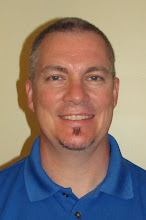Yesterday I concluded a three week class I've been teaching some of fourth and fifth grade Cub Scouts in my sons' pack. It was the
God & Family class, part of the
God and Country curriculum. In a couple of weeks I'll be teaching
God & Me to some of the second and third graders. One of the things we talked about today in our final session was the sharing of our faith. After talking about the story of
Shadrach, Meschach and Abednego, the boys were asked this question, "How do you talk about your faith with your friends?" I was floored by their response. Their overwhelming response was, "We're not allowed to talk about God in school."
When I tried to assure them that they could indeed talk about God in school, they emphatically explained to me how wrong I was. I used examples like they cannot stop you from telling a friend how much fun you had at church the day before. They were adamant in their belief that no mention of God whatsoever was allowed in schools.
I went on to explain that what is not allowed is the school itself telling them that one god or religion is preferable to another but they could talk personally to one another as much as they please, as long as they did not disrupt the educational environment. I had eight boys stare back at me, unwavering in their belief I was wrong.
I'm still trying to process that event. What led them to such a belief? Have we talked so much about how God has been kicked out of the public schools that our children have now constructed their own interpretations of what that means, regardless of how wrong it might be? Have we as parents and Christian teachers created a mentality that has discouraged the sharing of our faith for whatever reason? Have we become so afraid of the consequences (both legal and social) as adults that it has become passed down to our children without any conscious effort on our part?
I fear that what is happening in the minds of these young boys and people everywhere is the further confirmation that Christian faith is irrelevant to real life. It is becoming more and more privatized, severing all links from our day to day living. This is not an accurate protrayal of Christianity.
What I hope happens is that Christianity will begin to appear even more dangerous, so dangerous that our children will be afraid to mention it in school. I hope it becomes so dangerous that people begin to see its value again. I hope they begin to be drawn back to it because it must mean something. I hope people's lives are changed as a result. And I hope those eight young Cub Scouts will develop the faith and courage of three young Hebrew men who faced the fiery furnace.


